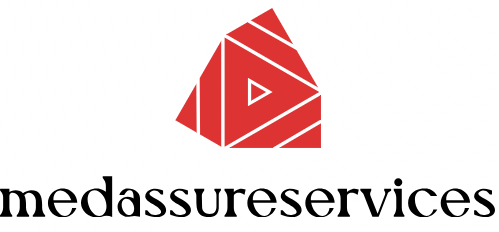Finding the best healthcare programs for seniors is crucial for ensuring they receive the proper care and support they need. As people age, healthcare becomes a top priority, and accessing reliable programs can make a significant difference in maintaining good health and quality of life. In this article, we’ll share some of the top healthcare programs for seniors, offering detailed explanations on how each one can benefit older adults. These programs aim to provide comprehensive support, from routine medical care to specialized treatments.
Medicare
When talking about healthcare programs for seniors, Medicare is often the first option that comes to mind. This federal program is designed specifically to help older adults cover the costs of healthcare. Medicare provides different parts that cater to various healthcare needs:

- Part A covers hospital stays and inpatient care.
- Part B includes outpatient services like doctor visits and preventive care.
- Part D focuses on prescription drug coverage.
Medicare is an essential resource for seniors, offering affordable access to the healthcare services they need. The program also provides preventive services like screenings, vaccines, and yearly wellness visits. It’s important to review Medicare options every year, as plans can change, and different parts can be customized to fit individual needs.
Medicaid for Seniors
Medicaid is another excellent healthcare program for seniors, especially for those with lower income or limited financial resources. While Medicaid is available to individuals of all ages, it provides extra assistance to seniors by covering long-term care, nursing homes, and certain medical services that Medicare doesn’t offer. In some cases, seniors who qualify can use both Medicaid and Medicare to maximize their healthcare coverage. This combination helps seniors reduce out-of-pocket costs and ensures they receive full medical support. It’s a highly beneficial option for those needing extended care.
Program of All-Inclusive Care for the Elderly (PACE)
The Program of All-Inclusive Care for the Elderly (PACE) is a comprehensive healthcare program designed to help seniors live independently at home while receiving medical care. PACE offers a range of services, including medical care, social services, and long-term care. The goal is to keep seniors out of nursing homes and enable them to stay in their own homes as long as possible. This program provides a team of healthcare professionals who work together to create personalized care plans that meet each senior’s unique needs.
PACE is an excellent option for seniors who want to remain in their community while receiving the healthcare support they need. It also includes transportation to healthcare appointments, meals, and physical therapy, making it one of the most inclusive healthcare programs for seniors.
Veterans Health Administration (VHA)
For seniors who have served in the military, the Veterans Health Administration (VHA) offers healthcare benefits tailored to their specific needs. VHA provides a wide range of services, including preventive care, specialty care, and mental health support. Veterans can access hospital services, rehabilitation, and long-term care through the program.
The VHA is particularly beneficial for veterans dealing with chronic conditions or service-related health issues. Seniors who qualify for the program can access affordable or even free healthcare services, depending on their eligibility. This is one of the most valuable healthcare programs for seniors who have served in the military.
Supplemental Security Income (SSI)
For low-income seniors who are disabled or unable to work, Supplemental Security Income (SSI) offers financial assistance that can be used to cover healthcare costs. SSI is a federal program that provides monthly payments to seniors with limited resources. This financial support can help cover medical expenses, including doctor visits, prescriptions, and other healthcare-related costs.
Although SSI is primarily a financial aid program, it plays a crucial role in ensuring seniors have the funds they need to access essential healthcare services. Seniors who qualify for SSI may also automatically qualify for Medicaid, making it easier to afford medical care.
Conclusion
In conclusion, there are several excellent healthcare programs for seniors that offer various levels of care and support. Medicare and Medicaid remain the most widely used, but other options like PACE and the Veterans Health Administration provide specialized services that can make a significant difference in seniors’ lives. Whether you’re seeking routine medical care or long-term support, these programs offer seniors the resources to maintain their health and well-being. It’s always a good idea to explore all available options to ensure seniors receive the best care possible.




